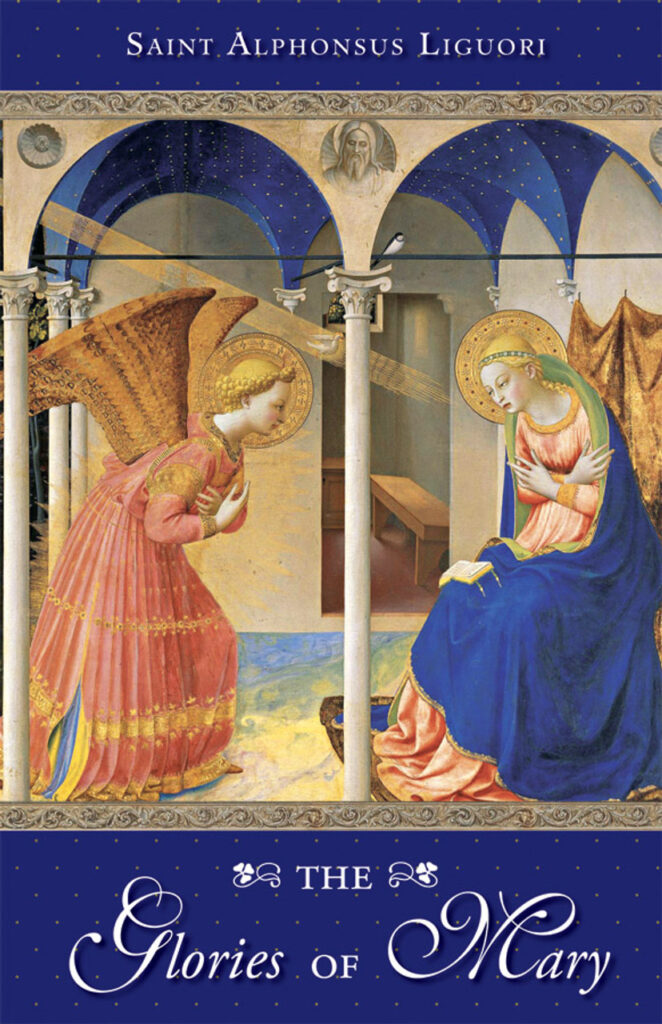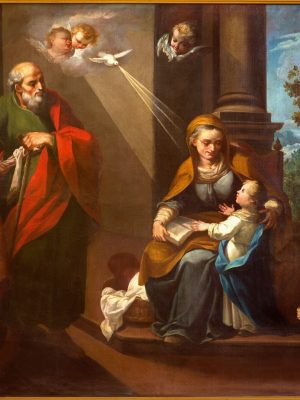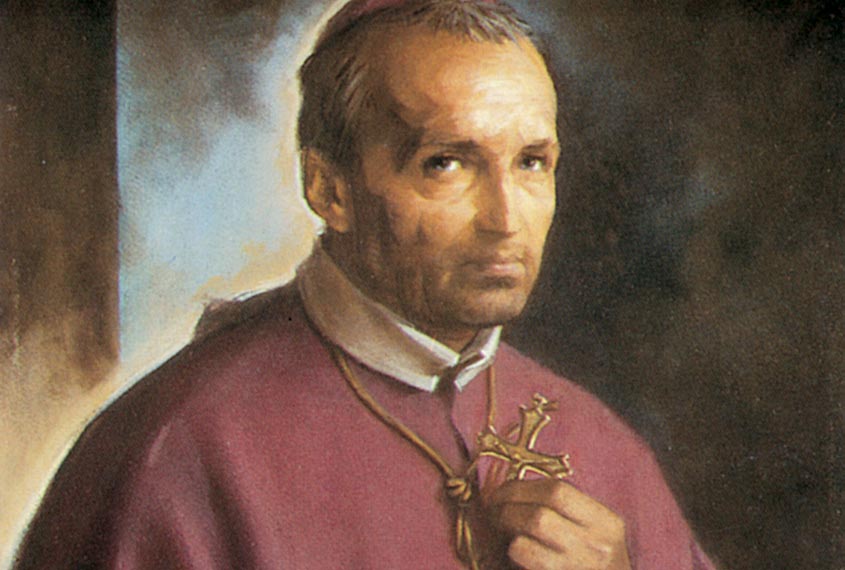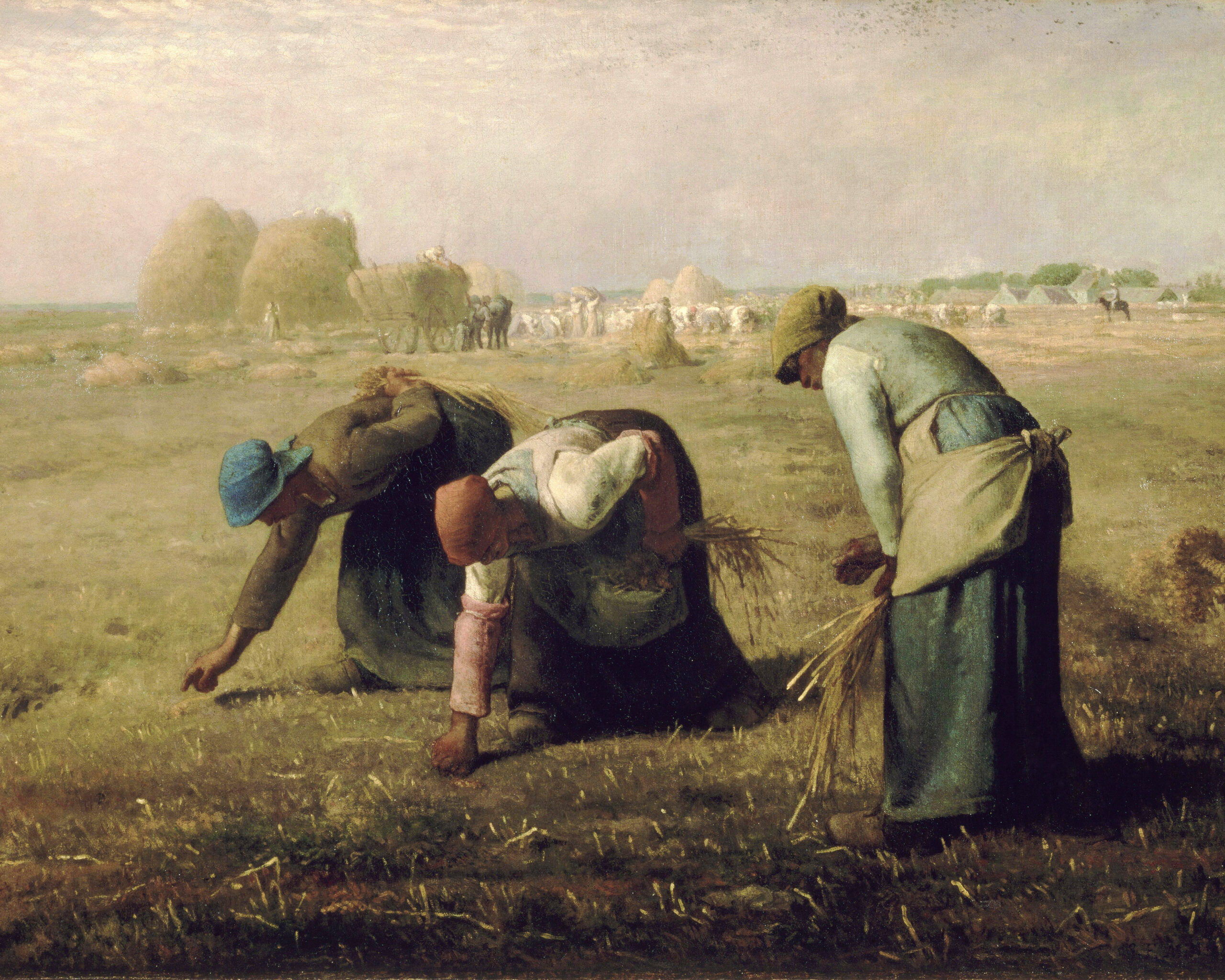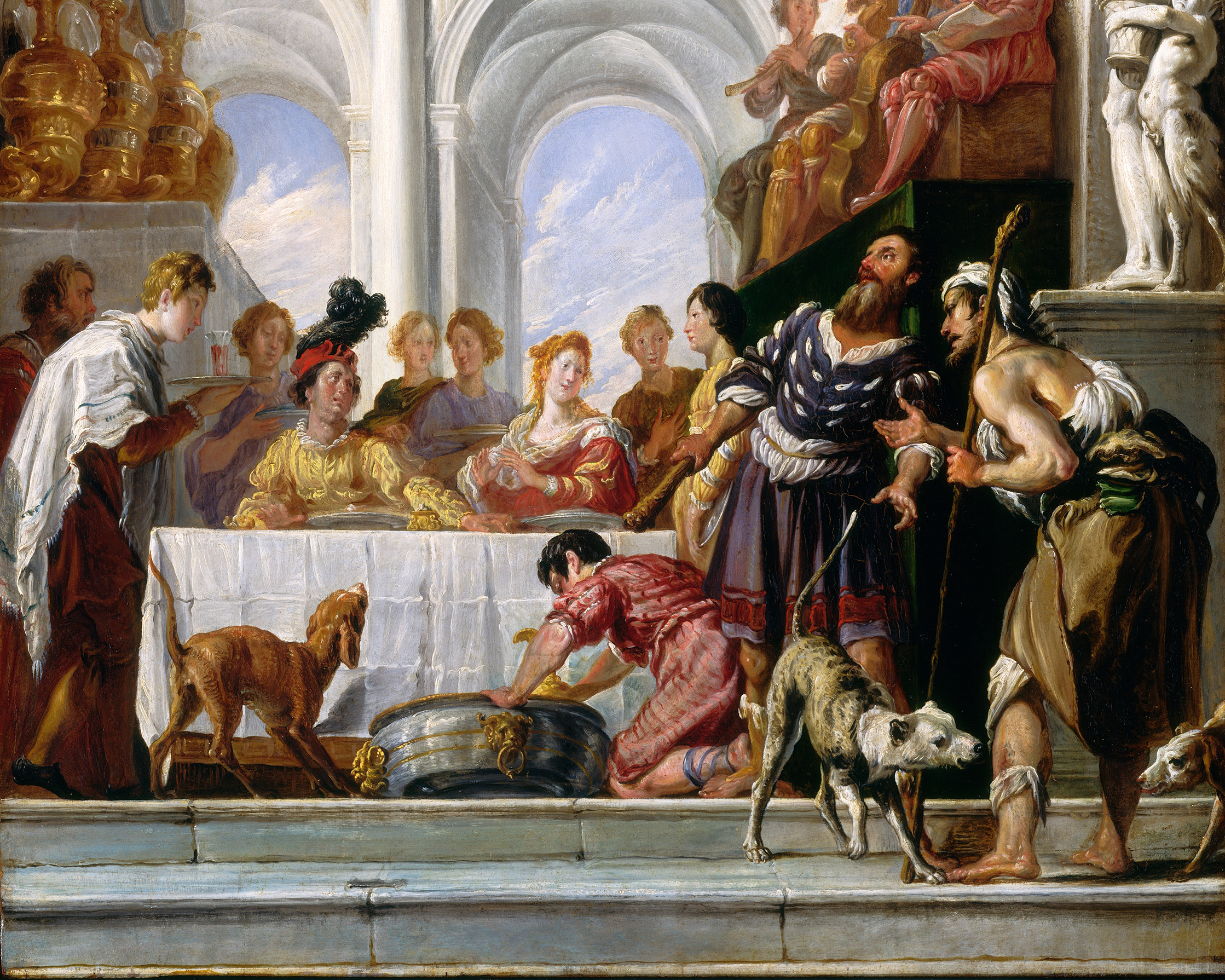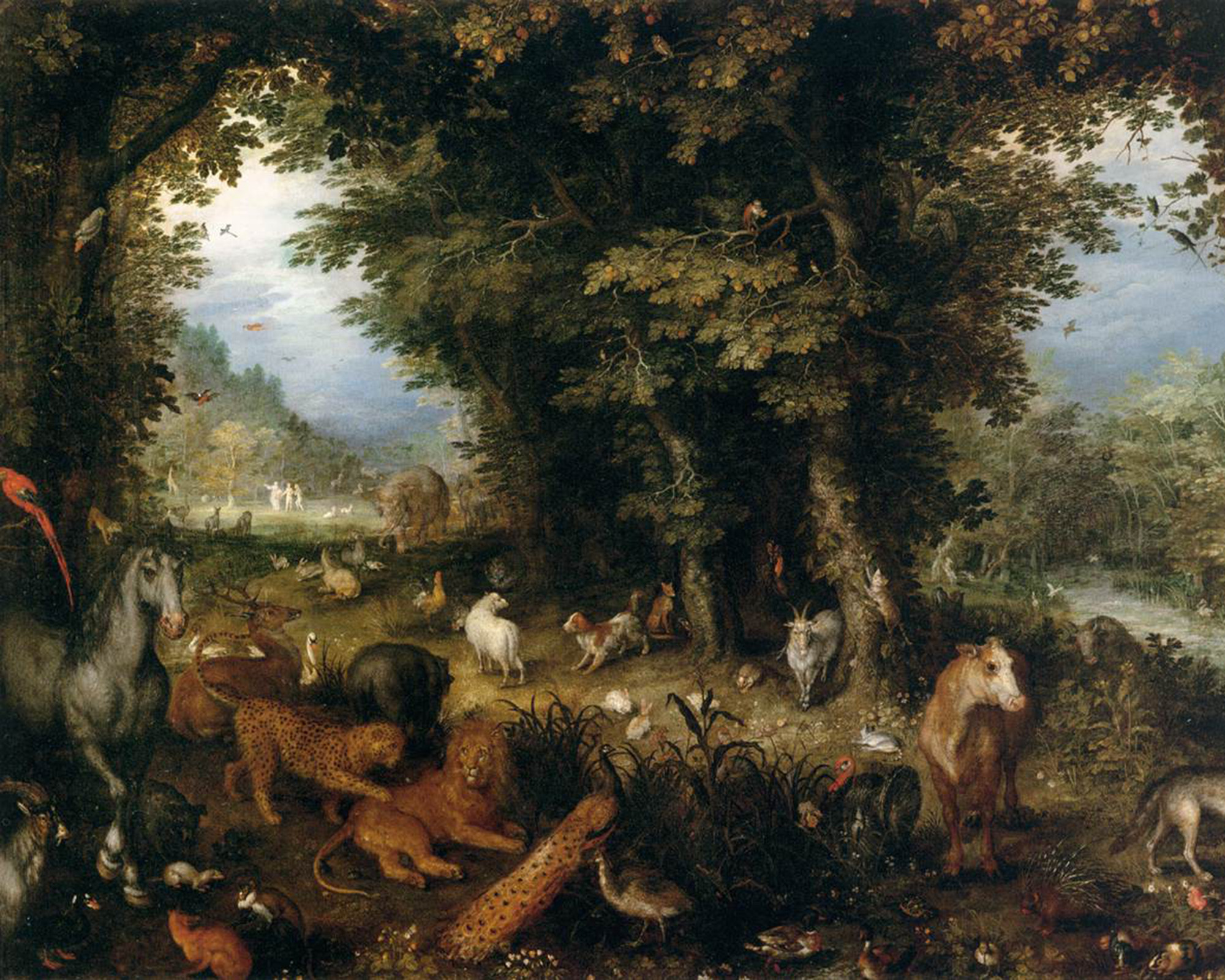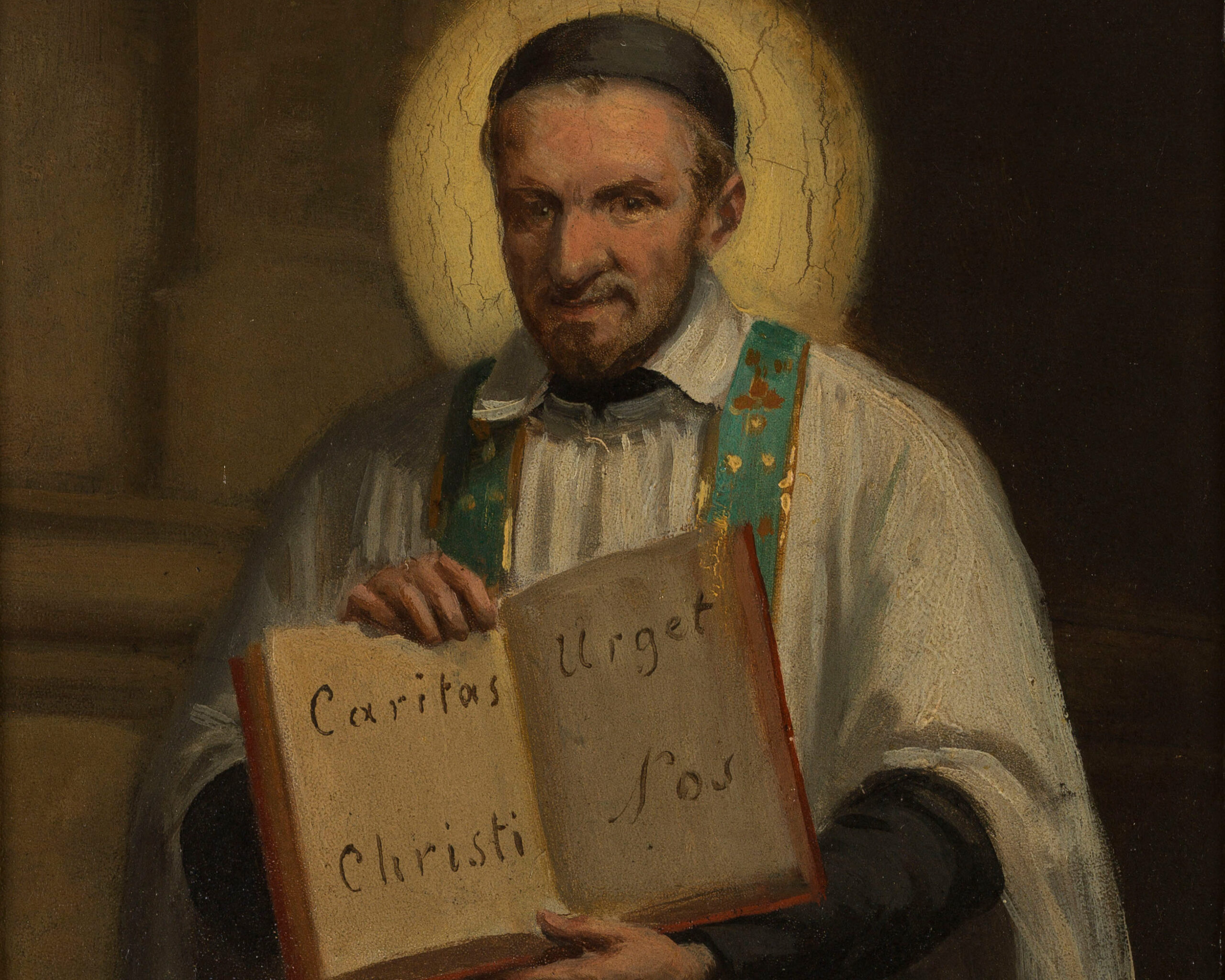“Mary was born a saint, and a great saint; for the grace with which God enriched her from the beginning was great, and the fidelity with which she immediately corresponded with it was great.”
-St. Alphonsus
Men usually celebrate the birth of their children with great feasts and rejoicings; but they should rather pity them, and show signs of mourning and grief on reflecting that they are born, not only deprived of grace and reason, but worse than this—they are infected with sin and children of wrath, and therefore condemned to misery and death.
It is indeed right, however, to celebrate with festivity and universal joy the birth of our infant Mary; for she first saw the light of this world a baby, it is true, in point of age, but great in merit and virtue. Mary was born a saint, and a great saint. But to form an idea of the greatness of her sanctity, even at this early period, we must consider, first, the greatness of the first grace with which God enriched her; and secondly, the greatness of her fidelity in immediately corresponding with it.
To begin with the first point, it is certain that Mary’s soul was the most beautiful that God had ever created; nay more, after the work of the Incarnation of the Eternal Word, this was the greatest and most worthy of Himself that an omnipotent God ever did in the world. Saint Peter Damian calls it ‘a work only surpassed by God.’
Hence it follows that Divine grace did not come into Mary by drops as in other Saints, “but like rain on the fleece,” as it was foretold by David. The soul of Mary was like fleece, and imbibed the whole shower of grace, without losing a drop. Saint Basil of Seleucia says, ‘that the holy Virgin was full of grace, because she was elected and pre-elected by God, and the Holy Spirit was about to take full possession of her.’
Hence she said, by the lips of Ecclesiasticus, “My abode is in the full assembly of saints;” that is, as Saint Bonaventure explains it, ‘I hold in plenitude all that other Saints have held in part.’ And Saint Vincent Ferrer, speaking particularly of the sanctity of Mary before her birth, says ‘that the Blessed Virgin was sanctified’ (surpassed in sanctity) ‘in her mother’s womb above all saints and angels.’
The grace that the Blessed Virgin received exceeded not only that of each particular saint, but of all the angels and saints put together, as the most learned Father Francis Pepe, of the Society of Jesus, proves in his beautiful work on the greatness of Jesus and Mary. And he asserts that this opinion, so glorious for our Queen, is now generally admitted, and considered as beyond doubt by modern theologians (such as Carthagena, Suarez, Spinelli, Recupito, and Guerra, who have professedly examined the question, and this was never done by the more ancient theologians). And besides this he relates, that the Divine Mother sent Father Martin Guttierez to thank Father Suarez, on her part, for having so courageously defended this most probable opinion, and which, according to Father Segneri, in his ‘Client of Mary,’ was afterwards believed and defended by the University of Salamanca.
But if this opinion is general and certain, the other is also very probable; namely, that Mary received this grace, exceeding that of all men and angels together, in the first instant of her Immaculate Conception. Father Suarez strongly maintains this opinion, as do also Father Spinelli, Father Recupito, and Father la Colombiere. But besides the authority of theologians, there are two great and convincing arguments, which sufficiently prove the correctness of the above opinion.
The first is, that Mary was chosen by God to be the Mother of the Divine Word. Hence Denis the Carthusian says, ‘that as she was chosen to an order superior to that of all other creatures (for in a certain sense the dignity of the Mother of God, as Father Suarez asserts, belongs to the order of hypostatic union), it is reasonable to suppose that from the very beginning of her life gifts of a superior order were conferred upon her, and such gifts, that they must have incomparably surpassed those granted to all other creatures.
And indeed it cannot be doubted that when the Person of the Eternal Word was, in the Divine decrees, predestined to make Himself man, a Mother was also destined for Him, from whom He was to take His human nature; and this Mother was our infant Mary. Now Saint Thomas teaches that ‘God gives everyone grace proportioned to the dignity for which He destines him.’ And Saint Paul teaches us the same thing when he says, “Who also hath made us fit ministers of the New Testament;” that is, the apostles received gifts from God, proportioned to the greatness of the office with which they were charged.
Saint Bernardine of Sienna adds, ‘that it is an axiom in theology, that when a person is chosen by God for any state, he receives not only the dispositions necessary for it, but even the gifts which he needs to sustain that state with decorum.’
But as Mary was chosen to be the Mother of God, it was quite becoming that God should adorn her, in the first moment of her existence, with an immense grace, and one of a superior order to that of all other men and angels, since it had to correspond with the immense and most high dignity to which God exalted her. And all theologians come to this conclusion with Saint Thomas, who says, ‘the Blessed Virgin was chosen to be the Mother of God; and therefore it is not to be doubted but that God fitted her for it by His grace;’ so much so, that Mary, before becoming Mother of God, was adorned with a sanctity so perfect that it rendered her fit for this great dignity.
The holy Doctor says, ‘that in the Blessed Virgin there was a preparatory perfection, which rendered her fit to be the Mother of Christ, and this was the perfection of sanctification.’
This article is taken from a chapter in The Glories of Mary by St. Alphonsus Liguori which is available from TAN Books.
